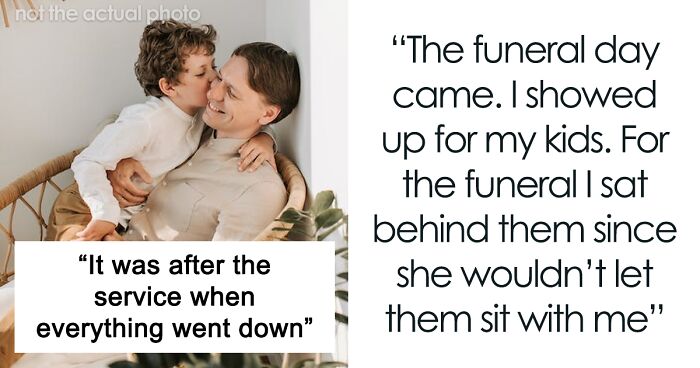
Mom Is Disgusted With Kids’ Lack Of Grief Over Their Late Stepfather, Their Real Dad Steps In To Bring Her Back To Earth
InterviewGrief is one of the strongest human emotions, and it’s no secret that it cannot be forced. Nor can it be hurried. Everyone deals with loss differently, and this is a very individual experience.
Recently, a story featuring family drama caught everyone’s attention on the AITA community. “My ex-wife and I share two children. Our daughter is 13 and our son is 11. She was remarried for 7 years and has two children with her late husband. He died a week ago,” the dad wrote.
It turns out that the mom was not happy with the fact her kids weren’t grieving her husband’s loss that much. So she kept pushing them into feeling and showing more sadness, which just didn’t sit well with the kids’ dad.
Dad wonders if he crossed the line when he lashed out at his ex-wife for pushing their kids into grieving her late husband

Image credits: Elina Fairytale (not the actual photo)
Image credits: Ivan Samkov (not the actual photo)
Image credits: Vera Arsic (not the actual photo)
Image credits: Jordan Bergendahl (not the actual photo)
“No one can force us to feel anything,” an expert says
“Grief has many faces and is unique for each person. There is no wrong way to grieve,” Jennifer Williams, the founder of Heartmanity and the Heartmanity Center, located in Bozeman, Montana, told Bored Panda while commenting on the story.
“No one can force us to feel anything. Emotions are personal and intimately woven into the fabric of our experiences and relationships. Emotions are how we as human beings interpret and process our experiences,” she explained.
“Pressure to feel grief or guilting a child because their experience of a loss is different is unhelpful”
Moreover, Williams explained that pressure to feel grief or guilting a child because their experience of a loss is different than we expect (or want) is unhelpful. “As parents, our job is to support children with love and nonjudgmental compassion (even though this might be challenging when we ourselves are grieving, like the mother in this article).”
Williams added that the goal is to assist children to allow their feelings to unfold naturally and help them integrate their experience.
Image credits: Pavel Danilyuk (not the actual photo)
“If a stepparent hasn’t truly connected with their children, one of the faces of grief presents itself as silent relief”
Meanwhile, stepparenting is complex. “Children often feel so much grief over a divorce prior to a parent remarrying that it can be tough for children to bond with their stepparent. They might even feel guilty for liking or loving their stepparent,” Williams told us.
“A stepparent’s primary job is to consistently connect and build a loving relationship with their stepchildren,” she explained.
Williams explained when we grieve a loss, it is often linked to how much we miss the person’s presence in our lives and how much they mean to us.
“Grief allows us to process the loss. Therefore, if a person (or stepparent) hasn’t truly connected with their children or seen them for who they are, or they haven’t shared positive and meaningful experiences with them, perhaps one of the faces of grief presents itself as silent relief.”
The dad went into more detail about why his kids didn’t have a good relationship with their stepdad
Image credits: KaleidoscopeLeft7130
Image credits: Andrea Piacquadio (not the actual photo)
Grieving is not just an emotional experience, it goes hand in hand with intense sadness, profound loss, and psychological pain. In fact, grief has a physical side that increases a variety of health risks.
According to Dr. Maureen Malin, a geriatric psychiatrist with Harvard-affiliated McLean Hospital, “most of these side effects are the result of emotional distress responses.” In fact, grieving, just like intense stress, “affects the whole body and all organ systems, and especially the immune system.”
There’s also enough evidence backing up the fact that when grieving, our immune cell function falls and inflammatory responses rise. What’s more, the heartbreak of grief is said to increase blood pressure and even heighten the risk of blood clots.
Extreme stress, the kind experienced after the loss of a loved one, is associated with changes in heart muscle cells or coronary blood vessels (or both) that prevent the left ventricle from contracting effectively — a condition called stress-induced cardiomyopathy or broken-heart syndrome. The symptoms are similar to those of a heart attack: chest pain and shortness of breath.
Many people showed their support in the comments
Sure, maybe that stepdad really did love those kids. Seems he was fair as far as treatment regarding his biological kids anyway....but that is totally irrelevant. Those kids did not love their stepfather, that's a plain and simple fact. I don't see what could be gained from them pretending to cry about it. They seem like good kids that tried to support their mom. Mom should be comforting the stepdad's bio kids who are likely much younger than OPs kids rather than trying to force the older kids to pretend to be sad.
Even if the kids had been close with their stepfather, they still might not have cried. Everyone grieves differently.
That's very true. You never know how you're going to react when someone close to you dies and it's not the same reaction for everyone that dies either. Some mean more than others and sometimes shock is masked by indifference too.
Load More Replies...What's wrong with laughter? On the day we spread my grandfathers ashes I was a mess, despite everything we had done before that moment, it felt final. Then my sister put her foot through a rotten piece of wood on the dock of the lake we were at, and lost her shoe. And all I could do was laugh. She laughed, and so did everyone else, because my grandfather never liked it when people were sad, he wanted them to be happy. My point is, I loved my grandfather very much, but these kids did not love their step-dad. Kids have a very black and white view of the world, this was a ruler in theirs who did not allow them to be children and had expectations of them that they couldn't live up to, and by the sounds of it, may have punished them further for not loving him the way he wanted. You aren't the AH and your ex is just in denial, she saw the image in her head and decided it was reality. This may have been the first step into her seeing that her reality wasn't real.
Sure, maybe that stepdad really did love those kids. Seems he was fair as far as treatment regarding his biological kids anyway....but that is totally irrelevant. Those kids did not love their stepfather, that's a plain and simple fact. I don't see what could be gained from them pretending to cry about it. They seem like good kids that tried to support their mom. Mom should be comforting the stepdad's bio kids who are likely much younger than OPs kids rather than trying to force the older kids to pretend to be sad.
Even if the kids had been close with their stepfather, they still might not have cried. Everyone grieves differently.
That's very true. You never know how you're going to react when someone close to you dies and it's not the same reaction for everyone that dies either. Some mean more than others and sometimes shock is masked by indifference too.
Load More Replies...What's wrong with laughter? On the day we spread my grandfathers ashes I was a mess, despite everything we had done before that moment, it felt final. Then my sister put her foot through a rotten piece of wood on the dock of the lake we were at, and lost her shoe. And all I could do was laugh. She laughed, and so did everyone else, because my grandfather never liked it when people were sad, he wanted them to be happy. My point is, I loved my grandfather very much, but these kids did not love their step-dad. Kids have a very black and white view of the world, this was a ruler in theirs who did not allow them to be children and had expectations of them that they couldn't live up to, and by the sounds of it, may have punished them further for not loving him the way he wanted. You aren't the AH and your ex is just in denial, she saw the image in her head and decided it was reality. This may have been the first step into her seeing that her reality wasn't real.

 Dark Mode
Dark Mode 

 No fees, cancel anytime
No fees, cancel anytime 






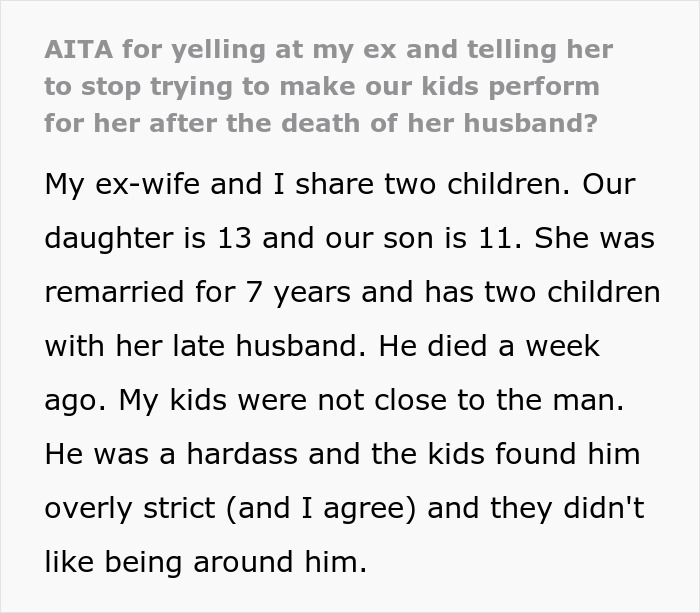
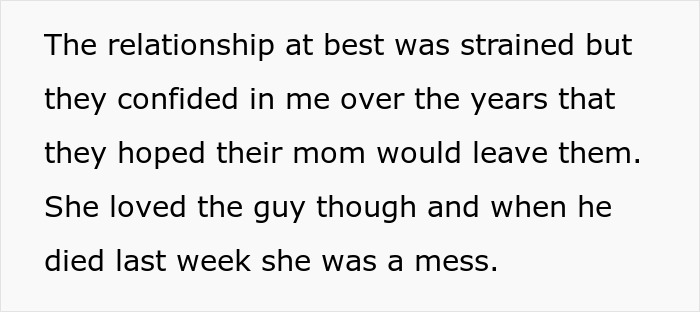
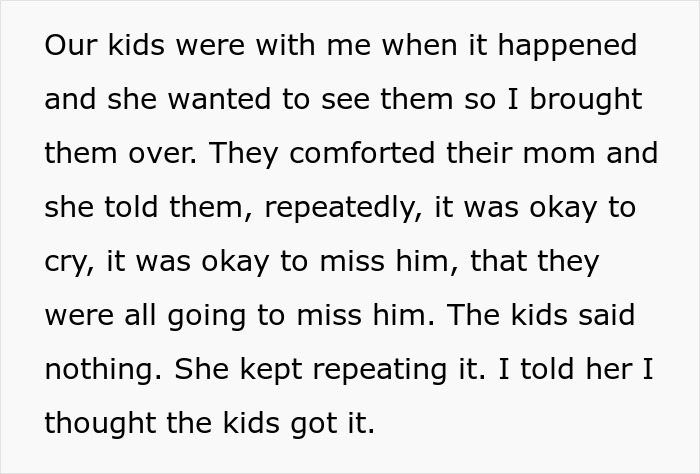
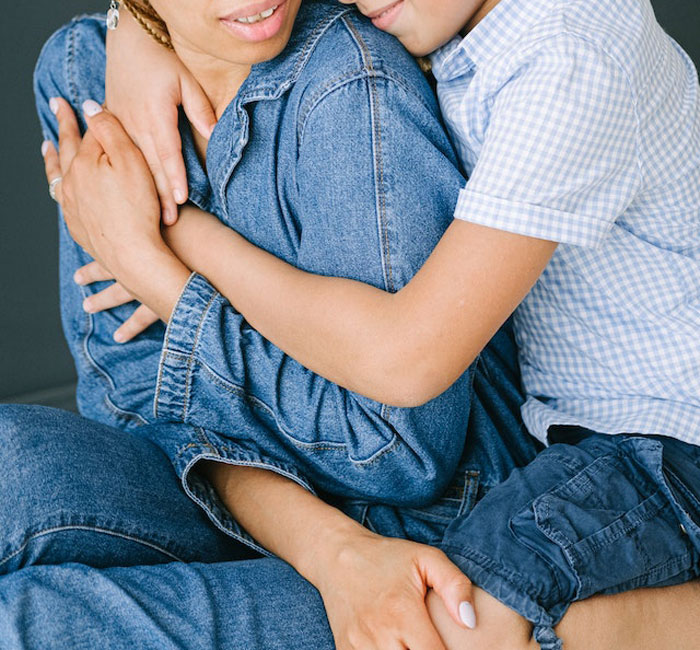

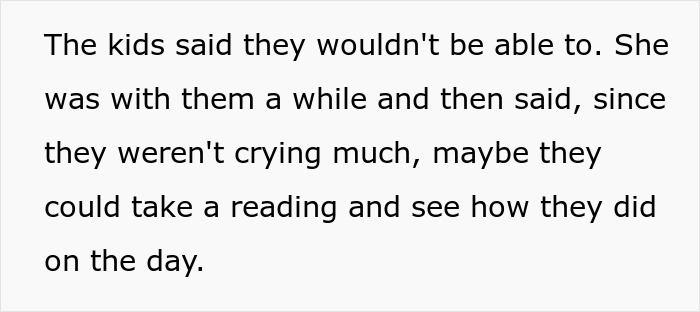

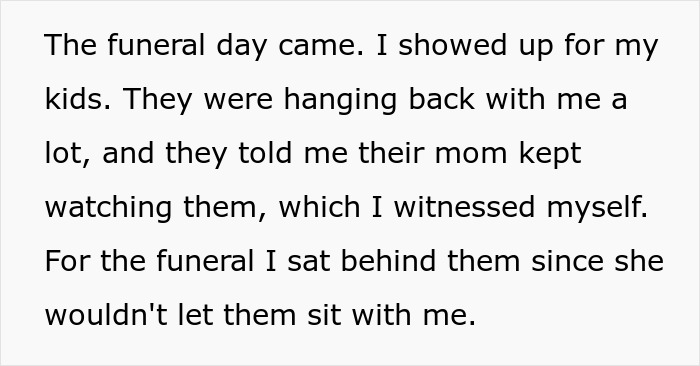
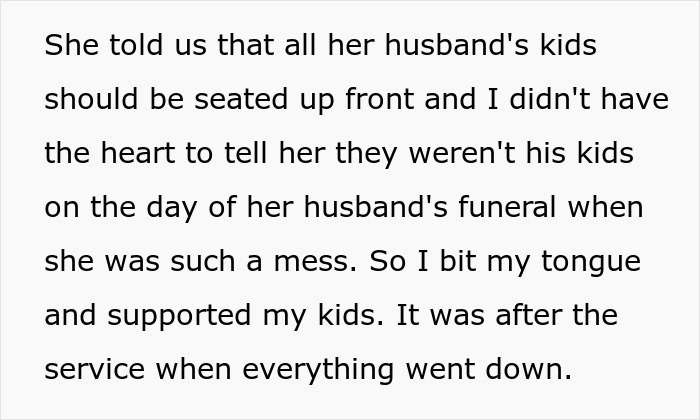
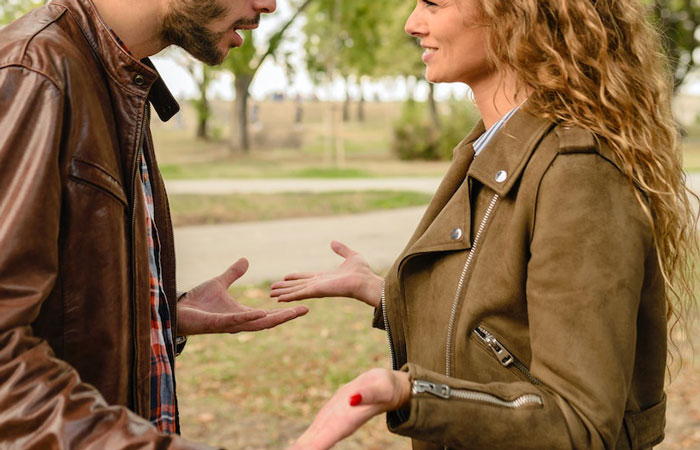
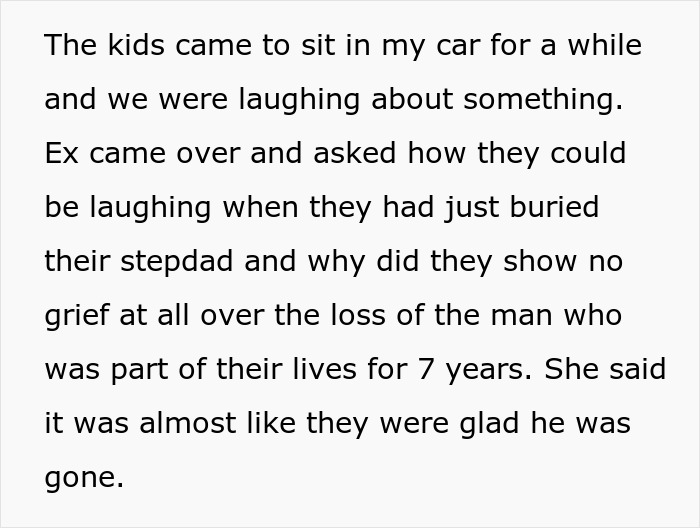

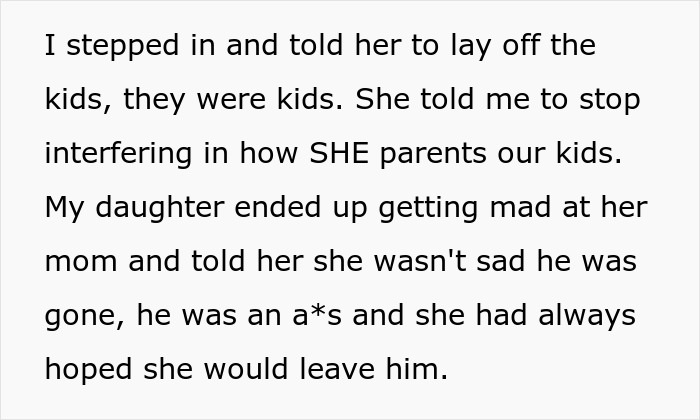
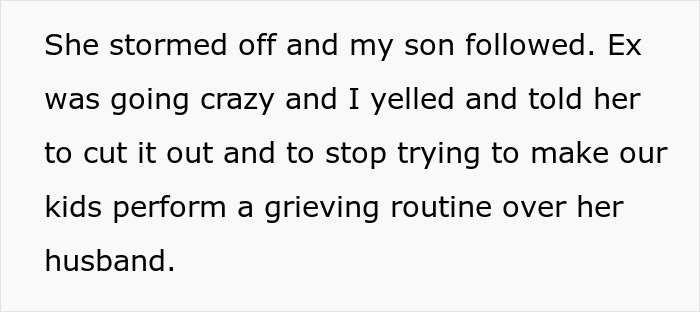


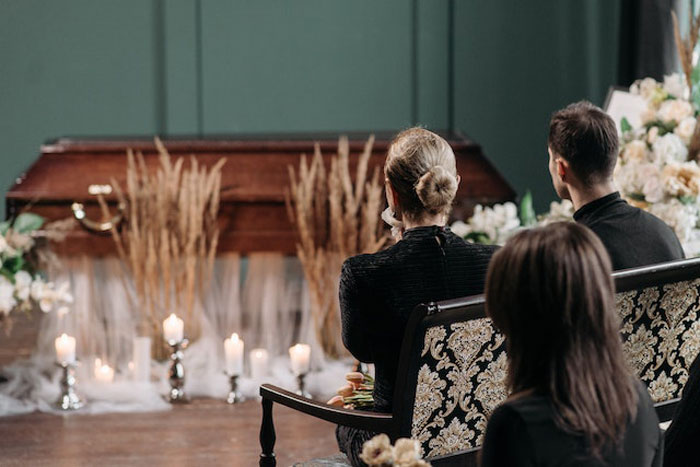

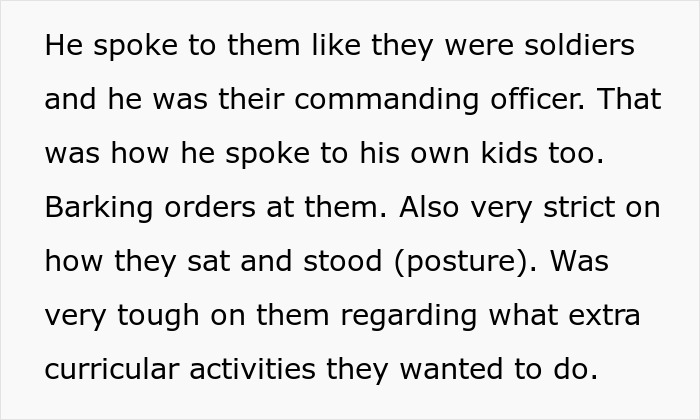
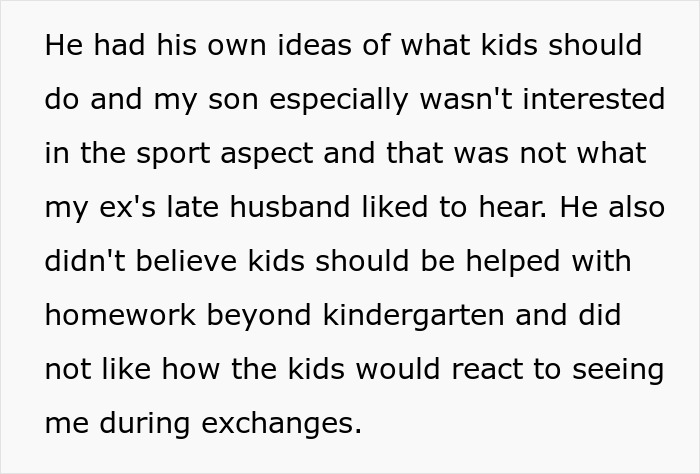
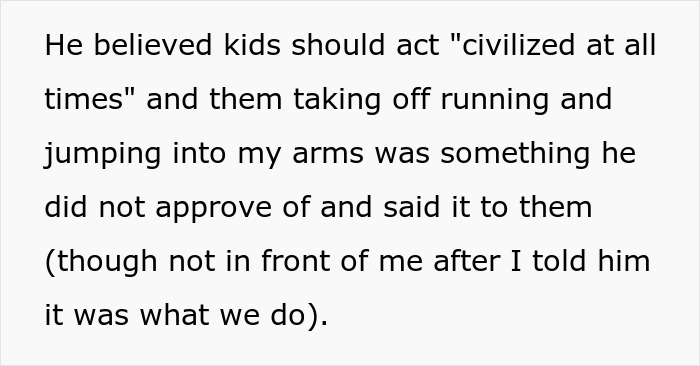

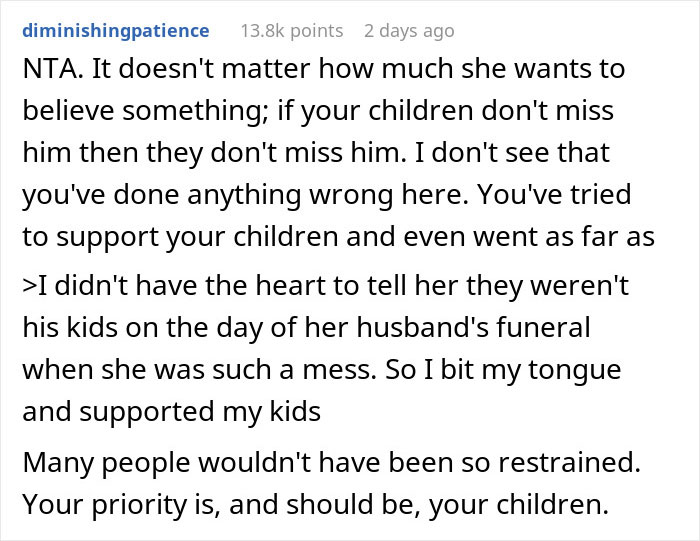
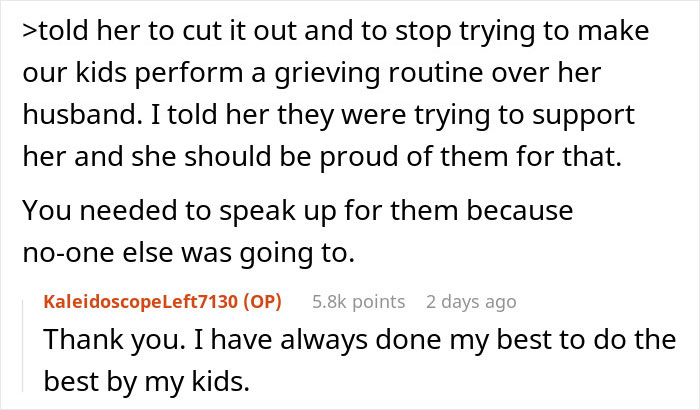
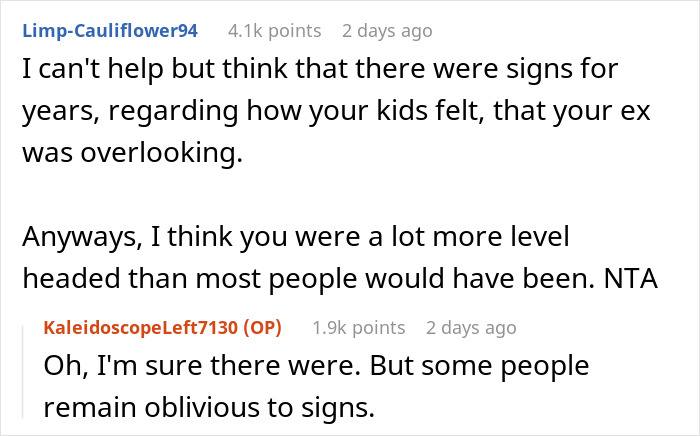
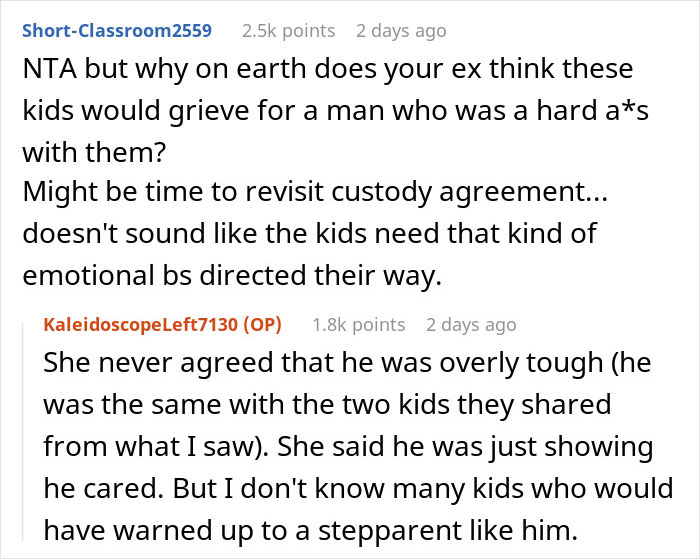
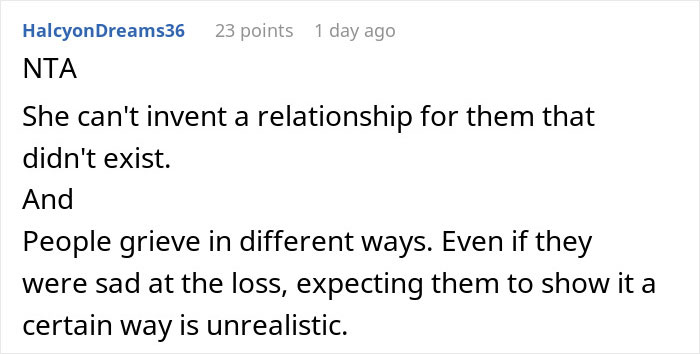
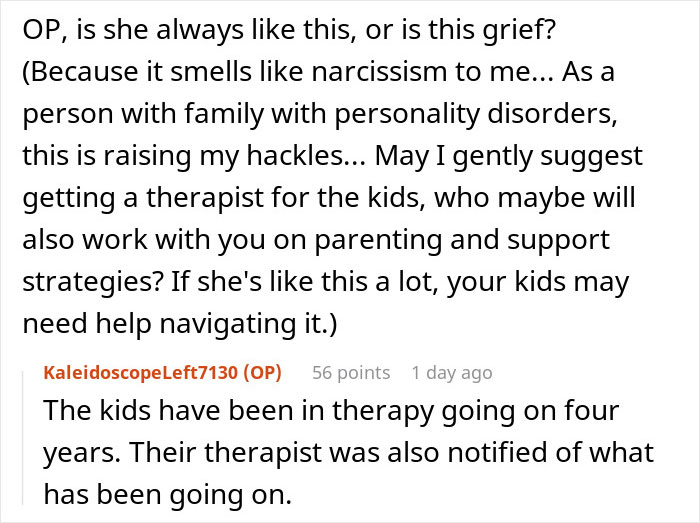



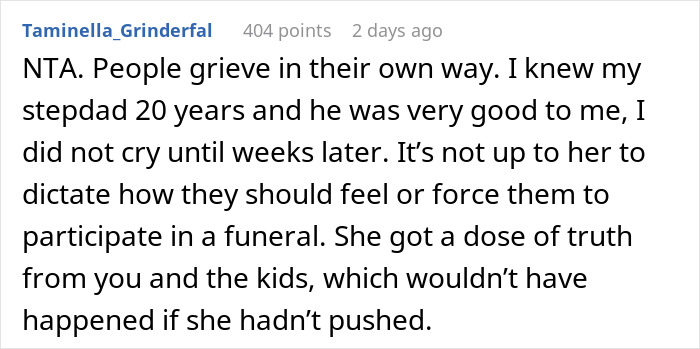
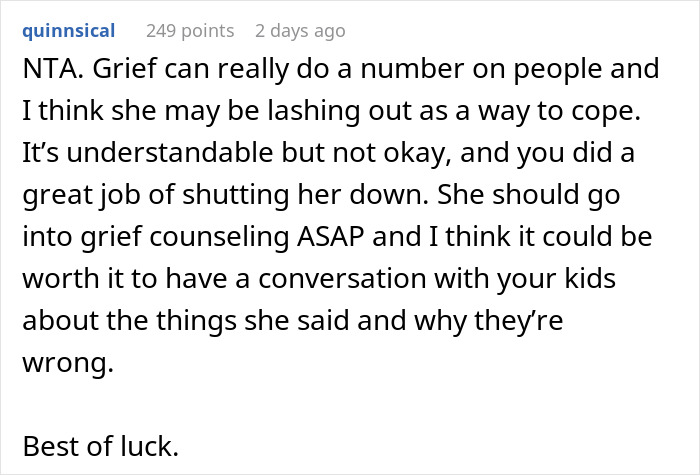

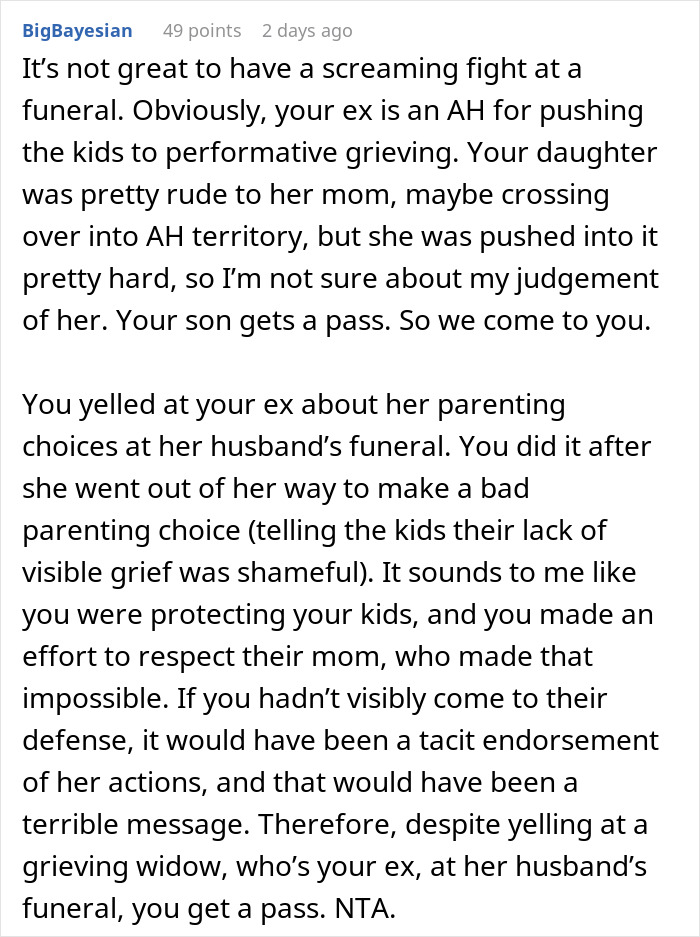
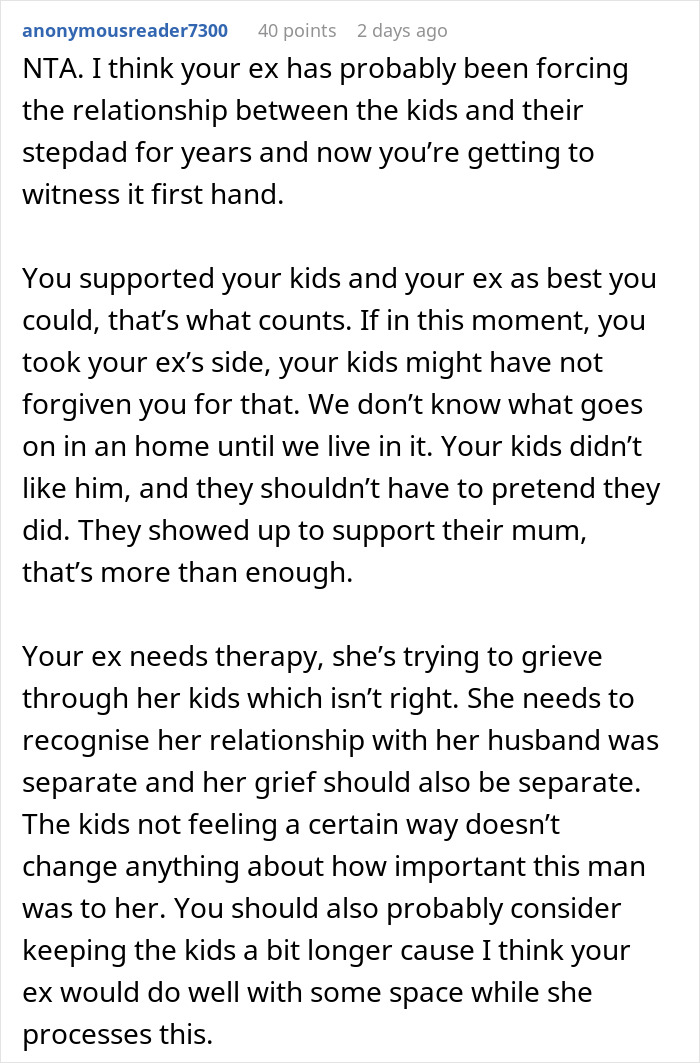










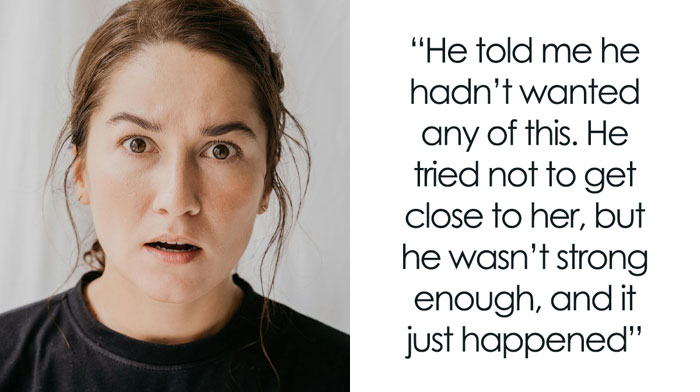



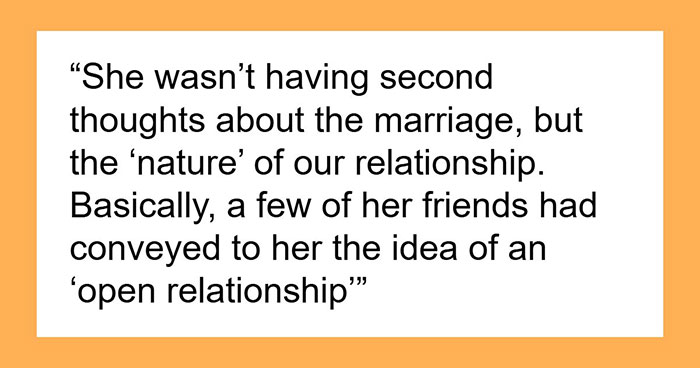






























101
20